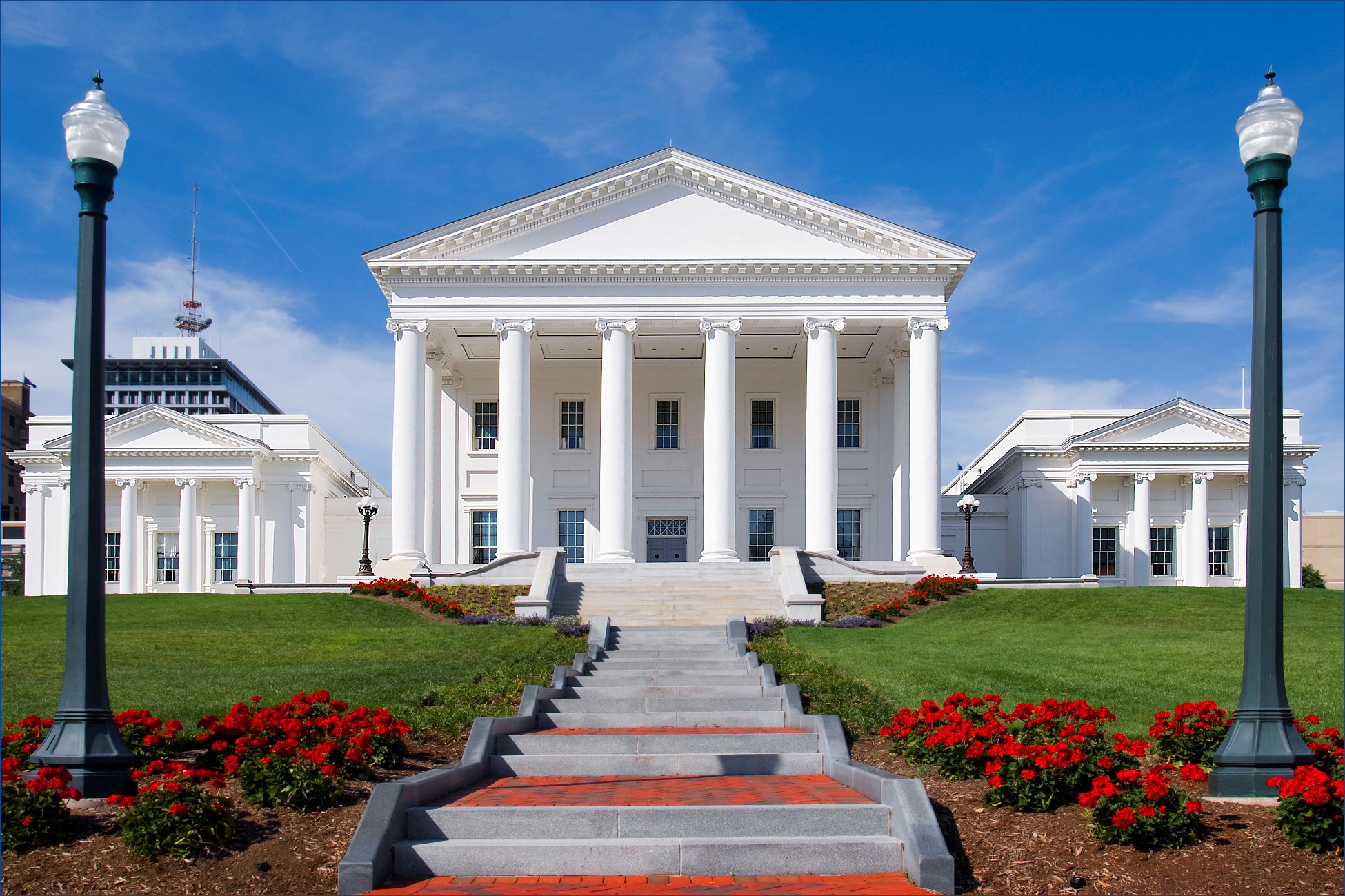Youngkin calls for repeal of new limits on college tuition program for military families
by Graham Moomaw, Virginia Mercury
After attempting to rein in the skyrocketing costs of a state program that covers college expenses for some military families, Virginia leaders are discussing whether the move is proving so politically unpopular that they should return to Richmond to undo it.
Advocates for military families have called for a special General Assembly session to repeal the changes to eligibility rules for the Virginia Military Survivors & Dependents Education Program, which assists spouses and children of military members who were killed or severely disabled as a result of their service.
That’s an option under consideration by Gov. Glenn Youngkin and General Assembly leaders, but so far there doesn’t appear to be a consensus on whether the issue has caused a crisis worthy of immediate reversal.
In an exchange of letters Monday, Youngkin told Democratic legislators responsible for the state budget that they can either work with him on the particulars of a special session or he’ll call one himself.
“We can work together to repeal the adopted language within the current special session, or I will convene a concurrent special session,” Youngkin wrote to House Appropriations Chairman Luke Torian, D-Prince William, and Senate Finance and Appropriations Chair Louise Lucas, D-Portsmouth. “I look forward to continuing our productive conversations on this matter.”
Because the General Assembly is technically still in the special session convened earlier this year to finish the budget, legislative leaders can call the members back to the Capitol at any time. If Democratic leaders resist Youngkin’s push, the governor can call a new, overlapping special session.
Torian and Lucas had sent the governor their own letter earlier in the day indicating they felt the issue could wait until the 2025 General Assembly session because current program participants are covered by a “grandfather clause.”
“The grandfather clause effectively allows for current and new students for the coming summer or fall 2024 to be exempt from the reform measures,” Torian and Lucas wrote.
The Virginia Mercury obtained copies of both letters.
The Democratic lawmakers also pointed out that Youngkin has already convened a task force to study the issue and make “meaningful recommendations for consideration” next year.
The Youngkin administration has prepared draft legislation to repeal the VMSDEP changes, and the governor’s office said Youngkin is hoping to work with General Assembly leaders to have them pass it by June 30.
“Virginia military members, who have dedicated their lives to protecting our freedom, and their families will continue to be a top priority for the governor,” said Youngkin spokesman Christian Martinez. “He is committed to reversing the eligibility changes and allowing the task force, which includes Gold Star families, legislators, members of the military, veterans and institutions of higher education, to make a comprehensive recommendation on a sustainable path forward that can be considered in 2025.”
The recently approved changes to VMSDEP were intended to address growing costs that lawmakers felt were becoming a financial burden for universities and other tuition payers. The program, which provides tuition waivers and stipends at public schools in Virginia, is also open to spouses and children of military members missing in action or taken captive.
The push to tighten eligibility for the program — which didn’t require participants to live in Virginia and allowed the benefit to be used for advanced degrees in addition to undergraduate studies — infuriated military families who say their benefits shouldn’t be on the chopping block at a time when Virginia’s budget seems relatively healthy.
A few weeks ago, it seemed the passage of Virginia’s overdue budget marked the end of big legislative battles in Virginia for the year. But the controversy over VMSDEP shows a new one might be emerging, as Youngkin sides with military families upset about the program’s overhaul and Democratic leaders face a choice over how strongly they should defend the policy change.
Opponents have portrayed the move as a blemish on Virginia’s reputation as a veteran-friendly state and an example of state government pushing significant policy initiatives with little transparency and public input.
Last week, Virginia’s Joint Leadership Council of Veteran Service Organizations, an official advisory body on veterans issues, voted unanimously to ask state leaders to hold a special session to repeal the changes.
“Much of the deliberation for these changes occurred without public input or dialogue,” the council said in a written statement. “This issue is too important to decide behind closed doors.”
The changes to VMSDEP were included in the bipartisan budget deal the Democratic-led General Assembly and Republican governor approved on May 13. The new budget takes effect July 1.
Springing the changes on families that have already endured hardship, said Stafford military veteran and advocate Caitlin Goodale-Porter, has been “catastrophic.”
“We have a stated objective to be veteran-friendly in Virginia,” Goodale-Porter said. “And we’re doing the exact opposite.”
Goodale-Porter was appointed to the state task force that will formally begin the process of studying VMSDEP at its first meeting June 10. That study could be helped, Goodale-Porter said, by political leaders undoing the changes they just made and starting the process anew.
“At this point they’ve gotten people so angry they’re talking about leaving the state,” she said. “And that hurts.”
(Virginia Mercury is part of States Newsroom, a nonprofit news network supported by grants and a coalition of donors as a 501c(3) public charity. Virginia Mercury maintains editorial independence. Contact Editor Samantha Willis for questions: info@virginiamercury.com. Follow Virginia Mercury on Facebook and Twitter.)


